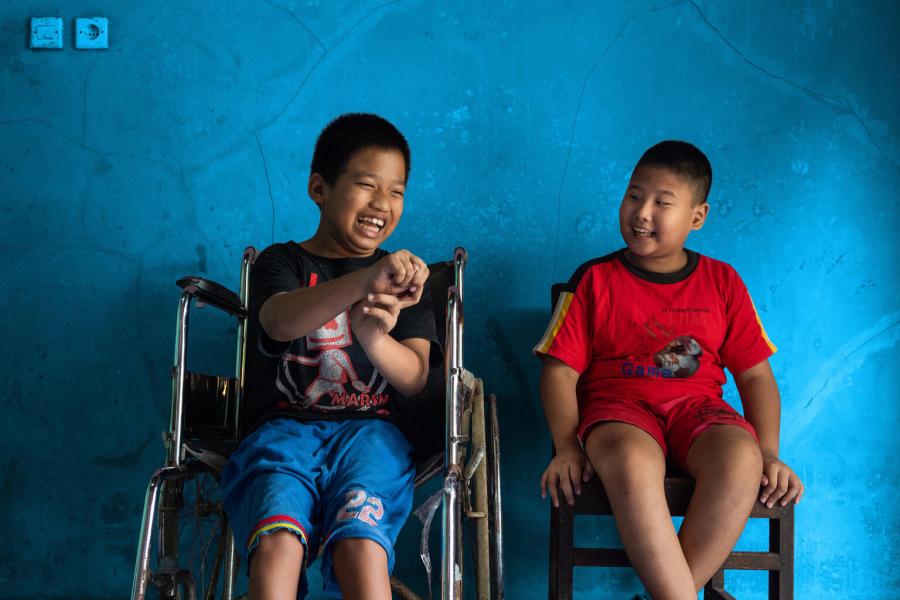UN report highlights disability data gaps in Indonesia
02 December 2022
--

© UNICEF/UNI358857/Ijazah
People with disabilities are being left behind. Their full and effective participation in society and equal access to basic services is hampered because they are unemployed, undereducated and still underrepresented in national statistics, according to a new report on disability data launched by the UN in Indonesia today. Published on the occasion of International Disability Day, December 3, the report is the first comprehensive analysis of how people with disabilities are represented in government statistics.
Data is needed not only to highlight gaps, but also to develop evidence-based policies to address the needs of people with disabilities and related economic and social inequalities.
"To get support from governments, people need to be made 'visible' - and those living with disabilities are not 'visible'," said Valerie Julliand, Chief UN Representative in Indonesia. "This is a big issue that we support the government to address.".
According to the report, disability statistics in Indonesia are insufficient because the data collected does not provide enough information about people with disabilities, their needs, capacities and well-being. The purpose of population statistics is not only to count people with disabilities, but also to consider what is needed to ensure that they can access education, buildings, transportation, employment, health services, legal services, and political participation. Inclusive development is central to the UN Agenda 2030 and the Sustainable Development Goals.
The UN and the Central Bureau of Statistics (BPS) are working with groups representing people with disabilities to fill gaps in official statistics. "With the right data, Governments and development partners will be able to focus resources to support those facing disability challenges," said Julliand.
Under-reporting starts at the macro level: the ratio of Indonesians living with a disability according to official government figures varies between 4% and 5% in stark contrast to the global average of 15%.
There are several reasons for under-reporting, according to the analysis:
- People with disabilities, especially those with visual or hearing impairments, are often ostracized, more reluctant or less able to participate in surveys than the rest of the population.
- The stigma associated with disability in society at large prevents many people with disabilities from disclosing.
- Different government agencies have different ways of approaching disability issues and use different definitions and methodologies for disability, making it difficult to reconcile and collect data.
The theme of this year's International Day of Persons with Disabilities is "Transformative solutions for inclusive development: the role of innovation in driving an accessible and equitable world". This is a reminder to ensure people with disabilities are not left behind. Transformative data solutions and innovations can help address these issues, Julliand emphasized.
The report was developed and prepared in collaboration with various stakeholders based on 2021 data; it is expected to be the starting point for official disability data collection in Indonesia.
The UN in Indonesia also launched a repository of reports on disability-related topics by all Agencies, available here: https://disability.un.or.id/
***


